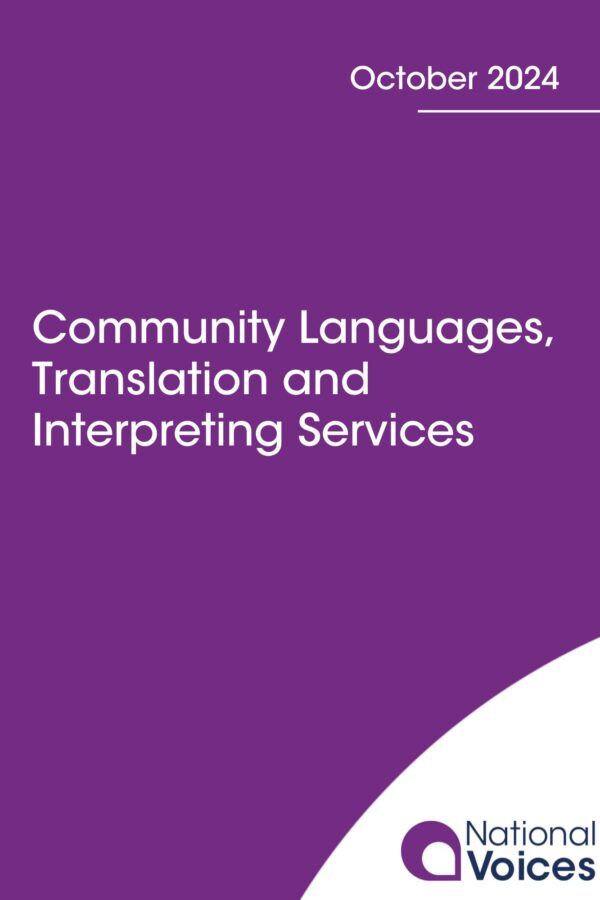
Community Languages, Translation and Interpreting Services
- Communication and administration
- Digital health and care
- Health inequalities
- Lived experience
- Person-centred care
- Primary care
- Integrated care
With 1 million people in the UK unable to speak English well, the currently subpar access to translation and interpretation in NHS services represents a significant challenge for the sector, leading to poorer healthcare outcomes as well as serious patient safety concerns.
Recognising this, and the resulting increase to healthcare inequalities, NHS National Healthcare Inequalities Improvement Programme commissioned National Voices to conduct in-depth research regarding the present services (Census, 2021).
As part of the new Improvement framework: community language translation and interpreting services, we conducted in-depth research with six marginalised communities across England. This work showed to us that too often barriers surrounding translation and interpretation result in lengthy delays in receiving a diagnosis, care, or in some cases treatment taking place without consent in place.
Our recommendations
As a result of our findings, we outlined seven clear recommendations:
- Patients must be offered choice in how they want to communicate with the health service, with their access and communication needs clearly recorded on their health records
- Translated personalised communication should become the norm
- Quality of translation and interpretation services must improve and the system better regulated
- High quality cultural competence training for health and care staff
- Mitigate against digital exclusion
- Create and upskill diverse healthcare teams that reflect the communities they serve
- Collaborate with community groups to support people in understanding their rights
The recommendations were carefully considered in the shaping of the final Improvement framework: community language translation and interpreting services. The Framework provides trusts with the opportunity to make a real difference to the communities they serve, enabling a greater focus on reducing health inequalities and supporting those who require translation and interpreting services in their interaction with the NHS.
Working towards equitable access to high quality care
We are grateful to the National Healthcare Inequalities Improvement Programme, NHS England, for commissioning this work and providing the opportunity for progress to be made in this space. NHSE’s vision on health inequalities, ‘Exceptional quality healthcare for all, ensuring equitable access, excellent experience and optimal outcomes’ sets the foundation for such work. This project speaks to all three dimensions of that vision; in particular, equitable access to high quality care.
Acknowledgements
The development of the Improvement framework: community language translation and interpreting services, was commissioned by the Healthcare Inequalities Improvement team, NHS England and completed by South Central West Commissioning Support Unit, who funded the research undertaken by National Voices.
We would like to thank those who shared their expertise throughout the development of the work, and supported in the organisation of focus groups:
- Afrocats
- Bangladeshi Mental Health Forum
- Caribbean and African Health Network
- The Delicate Mind
- Opoka
- Phoenix Family Service Community Pantry
- Roma Support Group